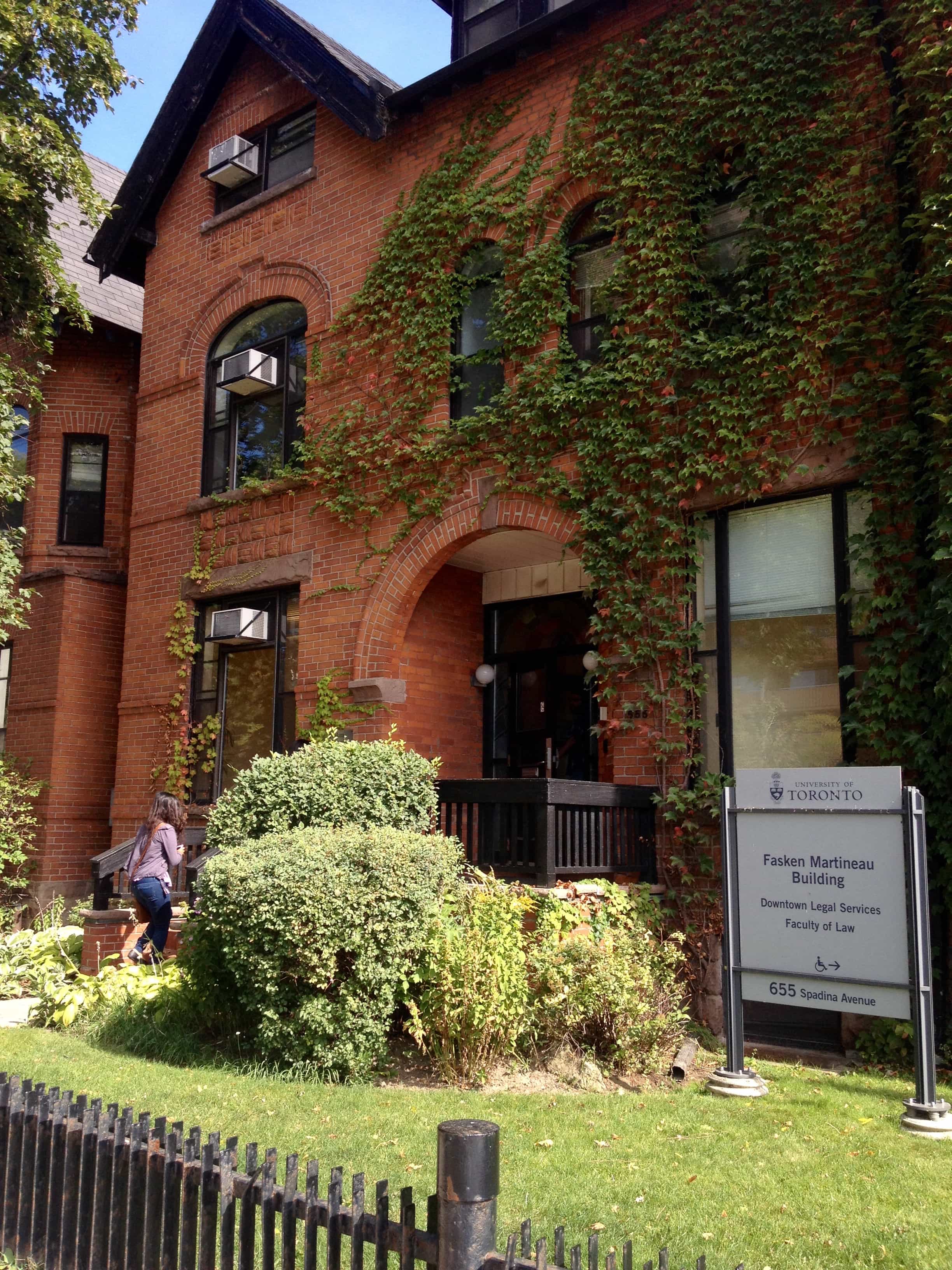Matt Howe (3L)
The Faculty of Law’s student legal clinic, Downtown Legal Services (DLS), is about to get busier. On Monday, September 21st, Legal Aid Ontario (LAO) announced a $100,000 per year funding increase to each of the seven Student Legal Aid Service Societies run out of law schools across Ontario. The purpose of the additional funding, according to LAO, is to allow the clinics to “provide additional services to low-income Ontarians while helping to train the lawyers of tomorrow.” The funding is part of a broader move by the Ontario government to increase access to legal aid through additional funding.

DLS will use some of the money to expand the scope of its housing law services. “We have long been frustrated by our inability to assist vulnerable tenants in alternate forums”, wrote Lisa Cirillo, Executive Director of DLS, in an email to UV. Whereas DLS has traditionally restricted their housing law practice to matters before the Landlord and Tenant Board, the increased funding means the clinic will be able to assist clients on housing law issues before both the Small Claims Court and the Human Rights Tribunals.
DLS will also add a brand new employment law division, which will offer services ranging from employment standards claims, human rights issues, and wrongful dismissal actions in the Small Claims Court. The decision to expand into employment law came in response to a number of assessments identifying employment law as a “high priority, under-served area of law for low income communities”, according to Cirillo. The need for employment law services is also expected to increase as financial eligibility criteria for Legal Aid increases, as there will be more individuals who are gainfully employed and yet don’t make enough to be denied assistance.
Amber Neumann, a 3L who volunteers with DLS and serves on its Executive Committee, thought the decision to use the increased funding on housing and employment was the right one. “Housing and employment are incredibly important areas of civil law for all of us, but especially for those of us made more vulnerable due to financial circumstances.”
Because of the structure of the student clinic, the only way to increase services and potential for student involvement is to increase the supervisory capacity of practicing lawyers employed by the clinic. Therefore DLS will use the additional money from LAO to allow Ben Ries, the clinic’s supervising housing lawyer, to transition from part-time to full-time practice with DLS. Additionally, a new employment lawyer will be hired to supervise for roughly 80% of the working week.
When asked what this means for students volunteering with DLS, Cirillo noted that “we have tripled the number of spots for students to participate in tenant housing work” and that the employment law division will be comparable to the clinic’s other civil divisions, although slightly smaller to reflect the fact that the supervising lawyer will only supervise for 80% of the week. “Every student we can’t take is a missed opportunity, both for us and for them”, wrote Neumann, “[the money] means more students will be able to participate and that those who do will have the opportunity to be exposed to a broader range of legal matters.”
Other law schools across the province are also moving to expand their services in light of the additional funding. York University’s Community and Legal Aid Services Program will begin offering employment law services, while Windsor’s Community Legal Aid will expand upon its housing services and begin offering services in consumer law. Lakehead University, which has only recently opened its own clinic, will not receive the additional funding until the 2016-2017 fiscal year.





